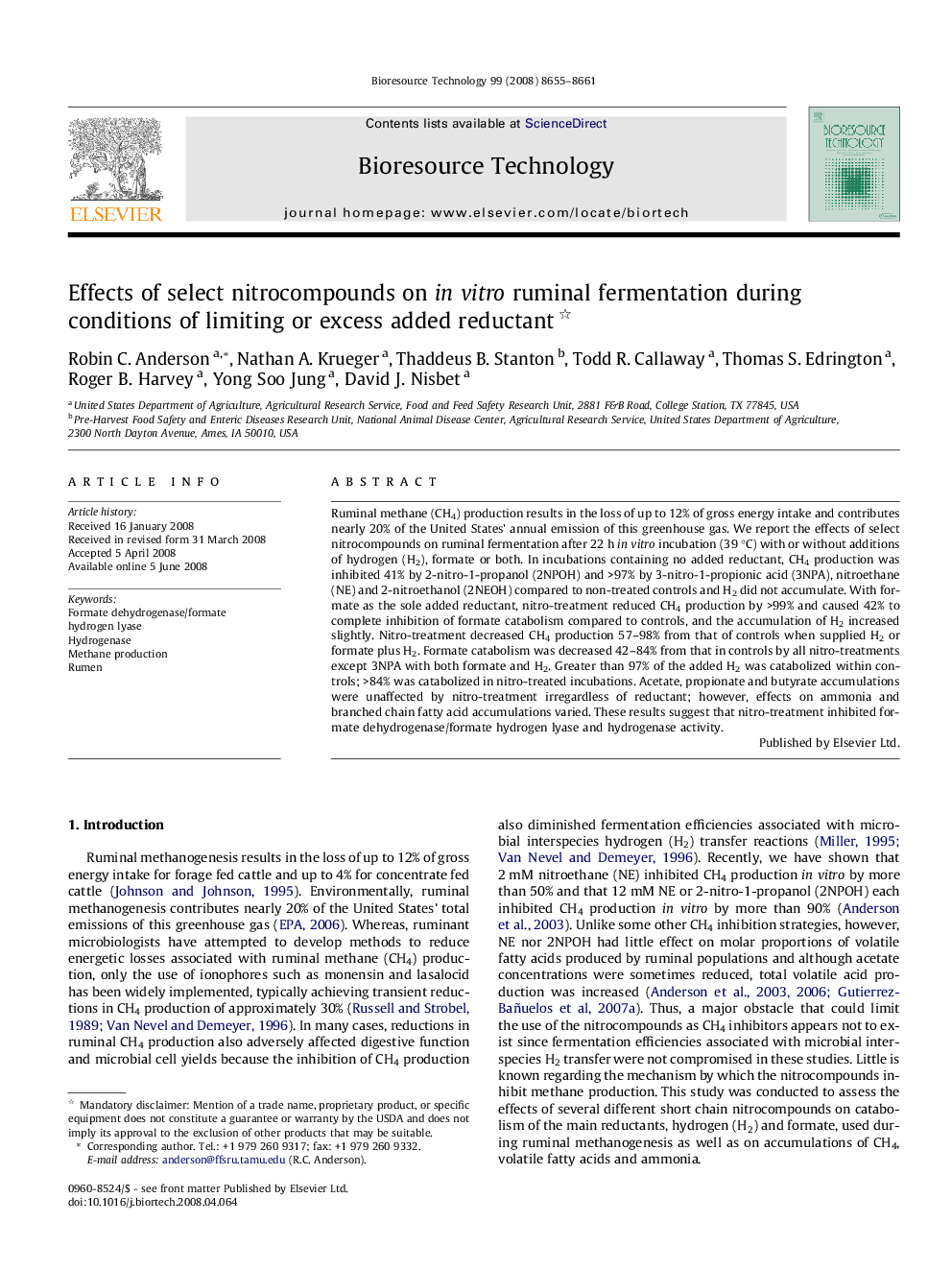| Article ID | Journal | Published Year | Pages | File Type |
|---|---|---|---|---|
| 684760 | Bioresource Technology | 2008 | 7 Pages |
Ruminal methane (CH4) production results in the loss of up to 12% of gross energy intake and contributes nearly 20% of the United States’ annual emission of this greenhouse gas. We report the effects of select nitrocompounds on ruminal fermentation after 22 h in vitro incubation (39 °C) with or without additions of hydrogen (H2), formate or both. In incubations containing no added reductant, CH4 production was inhibited 41% by 2-nitro-1-propanol (2NPOH) and >97% by 3-nitro-1-propionic acid (3NPA), nitroethane (NE) and 2-nitroethanol (2NEOH) compared to non-treated controls and H2 did not accumulate. With formate as the sole added reductant, nitro-treatment reduced CH4 production by >99% and caused 42% to complete inhibition of formate catabolism compared to controls, and the accumulation of H2 increased slightly. Nitro-treatment decreased CH4 production 57–98% from that of controls when supplied H2 or formate plus H2. Formate catabolism was decreased 42–84% from that in controls by all nitro-treatments except 3NPA with both formate and H2. Greater than 97% of the added H2 was catabolized within controls; >84% was catabolized in nitro-treated incubations. Acetate, propionate and butyrate accumulations were unaffected by nitro-treatment irregardless of reductant; however, effects on ammonia and branched chain fatty acid accumulations varied. These results suggest that nitro-treatment inhibited formate dehydrogenase/formate hydrogen lyase and hydrogenase activity.
